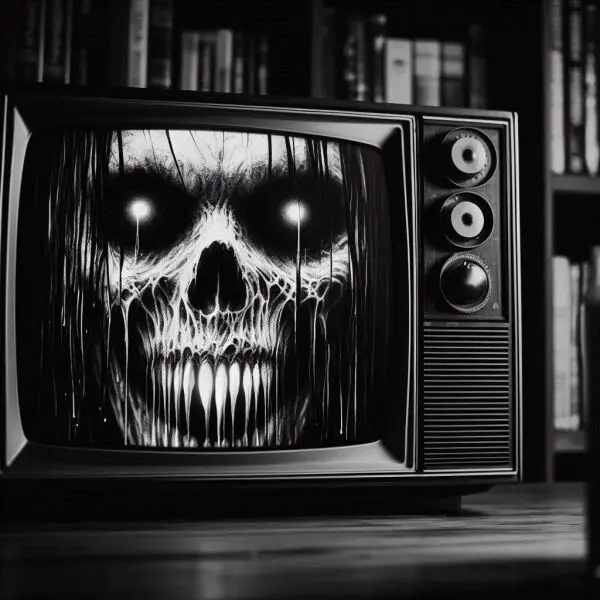Why do we enjoy watching horror movies? Science explains it
Discover why we love terror on Halloween: Science reveals how fear and stress hormones can be pleasurable for our brain....
Table of Contents
- The Pleasure of Fear
- The Science Behind Fear
- Fear as a Form of Escape
- Introspection and Self-Knowledge
Follow Patricia Alegsa on Pinterest!
The Pleasure of Fear
Halloween, known as the scariest night of the year, transforms fear into a delight sought by many. In a normal context, we associate fear with the negative, but during these festivities, it becomes an exciting and desired experience.
Spooky decorations and horror movies are welcomed with enthusiasm, and some even plan to watch horror films to celebrate. But what makes fear so appealing? Science provides some intriguing answers.
A study conducted by the Department of Psychology at Edith Cowan University in Australia and Arizona State University in the United States has identified four main reasons why our brain enjoys fear.
The Science Behind Fear
A study conducted by the Department of Psychology at Edith Cowan University in Australia and Arizona State University in the United States has identified four main reasons why our brain enjoys fear.
According to researchers Shane Rogers, Shannon Muir, and Coltan Scrivner, activities such as watching horror movies, participating in spooky escape rooms, or listening to terrifying stories provoke a unique emotional response.
The emotions of fear and excitement often intertwine, releasing stress hormones that trigger a series of physical responses such as increased heart rate and muscle tension.
These responses can be pleasurable for some people, especially those with bolder personalities.
Horror movies are designed to take us on an emotional journey similar to a roller coaster, with moments of intense fear followed by relief. This dynamic allows the body to experience a cycle of tension and relaxation, which can be addictive.
Fear as a Form of Escape
Horror movies are designed to take us on an emotional journey similar to a roller coaster, with moments of intense fear followed by relief. This dynamic allows the body to experience a cycle of tension and relaxation, which can be addictive.
Iconic films like "It" and "Jaws" exemplify this technique, keeping viewers on the edge of their seats as they alternate between tension and calm.
Moreover, fear provides a safe way to explore terrifying scenarios and satisfy our morbid curiosity without the risk of experiencing them in real life.
Horror movies can also serve as a mirror for our fears and personal traumas, fostering introspection about our insecurities. By observing how we react to terrifying situations, we can learn more about our emotional limits.
Introspection and Self-Knowledge
Horror movies can also serve as a mirror for our fears and personal traumas, fostering introspection about our insecurities. By observing how we react to terrifying situations, we can learn more about our emotional limits.
During the coronavirus pandemic, an additional study by Professor Coltan Scrivner found that people who regularly watched horror movies experienced less psychological distress compared to those who did not.
This suggests that facing fear in a controlled environment can strengthen our emotional resilience and help us cope with stress in real life.
Subscribe to the free weekly horoscope
Aquarius Aries Cancer Capricorn Gemini Leo Libra Pisces Sagittarius Scorpio Taurus Virgo
-
 The entrance of your home with Feng Shui: tricks to receive good energy and ward off bad vibes
The entrance of your home with Feng Shui: tricks to receive good energy and ward off bad vibes
Discover how to activate your home's entrance door with Feng Shui: tips to attract good vibes, block negative energies, and create an entrance full of harmony. -
 Shocking: his own pet disfigured him!
Shocking: his own pet disfigured him!
A tragedy transformed Ben Horne's life after an attack by his pet Henry during an epilepsy episode. It contains SENSITIVE IMAGES. -
 Shocking Prophecies of Baba Vanga: Extraterrestrial Invasion and New Wars Would Change the World
Shocking Prophecies of Baba Vanga: Extraterrestrial Invasion and New Wars Would Change the World
Baba Vanga’s shocking predictions about extraterrestrials, wars, and a mysterious “new light” rekindle the fear of imminent alien contact. -
 Can mice and cats be friends? Yes!, watch this video
Can mice and cats be friends? Yes!, watch this video
This is the story of the strange friendship between a cat and a mouse. Yes, as you are reading, a cat and a mouse who are very good friends. Discover this friendship in this heartwarming video. -
 Is the Rotten Smell the Smell of the Demon? Any Hidden Spiritual Message?
Is the Rotten Smell the Smell of the Demon? Any Hidden Spiritual Message?
Unexplained bad odor? Discover why the rotten smell could be a demonic sign or a powerful hidden spiritual message.
I am Patricia Alegsa
I have been writing horoscope and self-help articles professionally for over 20 years.
Subscribe to the free weekly horoscope
Receive weekly in your email the horoscope and our new articles on love, family, work, dreams and more news. We do NOT send spam.
Astral and numerological analysis
-
 Discover your future, secret personality traits and how to improve in love, business and life in general
Discover your future, secret personality traits and how to improve in love, business and life in general
-
 Online Dream Interpreter: with artificial intelligence
Do you want to know what a dream you had means? Discover the power of understanding your dreams with our advanced online dream interpreter using artificial intelligence that responds to you in seconds.
Online Dream Interpreter: with artificial intelligence
Do you want to know what a dream you had means? Discover the power of understanding your dreams with our advanced online dream interpreter using artificial intelligence that responds to you in seconds.
-
 Living a year on a cruise: luxury, adventure, and work with an ocean view
Living a year on a cruise: luxury, adventure, and work with an ocean view
Living a year on a cruise: floating luxury, exotic destinations, work with ocean views! How much does this adventure cost? ?? -
 Alarm: Cancer in Young Adults and Women Dramatically Increases
Alarm: Cancer in Young Adults and Women Dramatically Increases
Attention! Cancer is no longer just an issue for older people: it is growing among young people and women. Incredible but true! The reality is changing. -
 Incredible! NASA allows us to see fires around the world in real time
Incredible! NASA allows us to see fires around the world in real time
Look at planet Earth from above: you will see the fire outbreaks that are happening in real time or those that have occurred in the past. Be amazed! -
 Social Media: The Hidden Dangers for Children and How to Protect Them
Social Media: The Hidden Dangers for Children and How to Protect Them
Discover how social media affects children and adolescents: exploitation, sextortion, and cyberbullying endanger their mental and physical health. -
 The complete disappearance of an Inuit people in Canada: the truth that nobody tells
The complete disappearance of an Inuit people in Canada: the truth that nobody tells
Discover the fascinating story behind the mysterious disappearance of an Inuit people in Nunavut, Canada, 90 years ago. Was it a mass migration, an extraterrestrial abduction, or simply an urban legend? A narrative full of mysteries, investigations, and theories that will keep your curiosity awake. -
 Rainy Days: Why Do Your Joints Feel the Weather?
Rainy Days: Why Do Your Joints Feel the Weather?
Does it rain and do your knees hurt? Science investigates how the weather might influence your joints. Discover what the studies say! ?️? -
 Why is International Albinism Awareness Day celebrated?
Why is International Albinism Awareness Day celebrated?
Every June 13th is not just another day on the calendar. Since 2015, this day has become a beacon of hope, inclusion, and awareness for thousands of people around the world. -
 What does it mean to dream of cats?
What does it mean to dream of cats?
Discover the meaning of dreaming about cats, from the interpretation of these felines as symbols of intuition, cunning and mystery, to the different situations that may appear in your dreams. Don't miss this fascinating article! -
 What does it mean to dream of a king?
What does it mean to dream of a king?
Discover the fascinating world of dreams with our guide on What does it mean to dream of a king? Learn how to interpret your dreams and take control of your life. -
 What does it mean to dream of banknotes?
What does it mean to dream of banknotes?
Discover the hidden meaning behind your dreams with banknotes - is it a sign of prosperity or a message about your finances? Read our article to find out more! -
 Discover how sleep resets your memory and enhances learning
Discover how sleep resets your memory and enhances learning
Discover how sleep resets brain cells, allowing the hippocampus to store memories and enhance learning for a new day. -
 What does it mean to dream of time travel?
What does it mean to dream of time travel?
Discover the fascinating world of time travel dreams and their meaning. Are you ready to explore the past and the future in your dreams? Read our article now. -
 Constant tiredness in older adults: the warning sign you must not ignore
Constant tiredness in older adults: the warning sign you must not ignore
Constant tiredness in old age? Experts from Cleveland Clinic warn: persistent fatigue may be hiding serious illnesses. Seek medical advice in time.